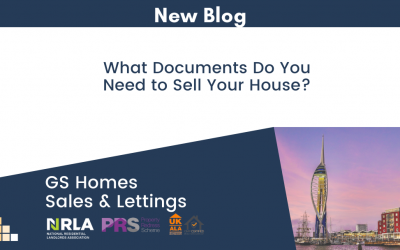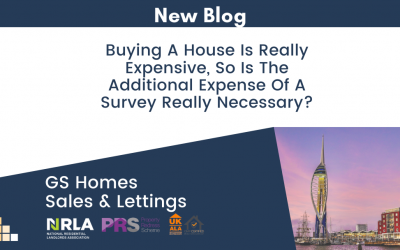The amount of money you will earn from their house sale is sometimes the most crucial factor for home sellers. Knowing how much you will have at the end might influence a variety of important life choices, including whether they need a deposit for their next house or want to release some equity.
We discuss how much of the total selling price you may anticipate to “take home” from your sale in this article, along with tips on how to maximise the amount you can get.
Do you get the whole money when you sell your home?
No, you will not usually be able to retain all of the money from the sale of your home.
A property costs money to sell. You must pay for estate agents, legal counsel (Solicitors), and maybe even some mortgage expenses. Before any money enters your account, many of these fees are immediately deducted from the sales profits.
How do you figure out your profit when selling a house?
The price at which your property sells and the amount you spend on the selling process will ultimately determine how much money you get from the sale of your home.
You must deduct your selling expenses from the total price at which your house sells to calculate your profit.
For instance, you would receive £220,000 if your house sold for £250,000, you spent £5,000 on the selling process, and you still owed £25,000 on your mortgage.
Regular expenses when selling a house include:
- Estate agent fees
- Conveyancing solicitor fees
- Final utility bills
- Removal charges
- Insurance for moving
- Mortgage costs, such as exit fees or early repayment charges
How will I find out how much money I will make when I sell my house?
Of course, until the transaction is finalised, you will not know how much your house will fetch. The appraisal provided by your estate agent might help you estimate how much money you could potentially earn.
You may budget your selling expenditures using this expected sum as well. The costs for conveyancing and estate agents are often calculated on a commission basis. Calculate the appropriate proportion depending on your estate agent’s assessment to obtain an idea of how much they could eventually cost.
If your property is worth £250,000 and your estate agent charges a 1.5% fee, for instance, you may calculate that the total cost would be about £3750.
Subtract them from your estate agent’s appraisal after you have calculated all probable expenditures associated with the transaction. This can give you an idea of how much cash you might anticipate getting after selling your house.
During the conveyancing portion of your transaction, you will get a more detailed breakdown of the money you will earn.
Before the remaining funds are sent to your account, conveyancers will often provide you with a document known as a “completion statement” that lists all the expenses they will cover with the money from your sale. You may anticipate that this will include expenses from the legal company, the Land Registry, your estate agent, and your mortgage provider.
The money will be divided if you and another person co-own the property by your ownership agreement (your conveyancer will be able to tell you the full details).
When will I get the money from the sale of my home?
Only once the procedure is “completed” can home sellers get their money from the sale of their homes. The keys are swapped on this day, making the buyer the legal owner of your property.
The buyer’s conveyancer will pay all relevant costs after receiving payment from your conveyancer and then transfer the remaining funds to your bank account.
Keep an eye out. It is quite unusual that a conveyancer would email you to ask for your bank account information or to provide you with theirs. Contact your solicitor by phone or in person if you have any questions or believe there has been fraud.
How to boost the proceeds from the sale of your house
There are a few things you can do to offer yourself the greatest chance of getting the most money possible, even though you can never be sure how much money you will collect from your house sale until it is through.
Know the terms of your mortgage
Check the conditions of your mortgage agreement after you have determined that you are ready to sell. This will display the fees that you must pay. For instance, you will probably have to pay a hefty departure charge if you are still inside the set term of your mortgage.
Consider delaying the listing of your house until the conclusion of your fixed term if you do not need to leave right away.
Stay away from “quick house selling” programs
It might be tempting to deal with a cash purchasing organization or consider an auction if you do need to sell soon for financial reasons. The money that is locked up in your property seems to be easily accessible via both approaches. It is doubtful that either choice will provide you with the best result, however.
Cash-purchasing businesses often only provide up to 70% of a property’s actual market worth. On the other hand, auctions contain a variety of fees that might significantly reduce your overall return. Before choosing one of these “fast sale” choices, think it over carefully.
Hire the best estate agent you can.
The finest estate agents excel at marketing and negotiating. They understand how to connect with buyers who are interested in houses similar to yours and how to market the amenities and neighborhood. You will have the greatest opportunity of negotiating the best final selling price for your house by working with an experienced agent.
Make your house look its best.
A buyer will value your property higher if it seems better than it does. Spend some time improving the appearance of your home for marketing images and viewings. This can include making repairs or hiring a cleaner with training.
Know what to shop around for
Even if it makes sense to choose the greatest estate agents over the least expensive, there are several aspects of your house sale that you should compare prices on. EPCs, also known as Energy Performance Certificates, are one of them.
You can spend up to £85 if you get your EPC via an estate agency. Get a quotation here to see if you can arrange one for as low as £35 instead.
Another area where comparison shopping is important is removals. It may be necessary for you to employ packers and a huge van, but you may be able to save money by using a rental vehicle and the assistance of friends.
If you’re looking to sell or let your home with a Lee On the Solent Estate Agent, Stubbington Estate Agent, Gosport Estate Agent, Fareham Estate Agent, Portsmouth Estate Agent then please do no hesitate to email on info@gshomes.co.uk or call on 023 93 960 169.




0 Comments